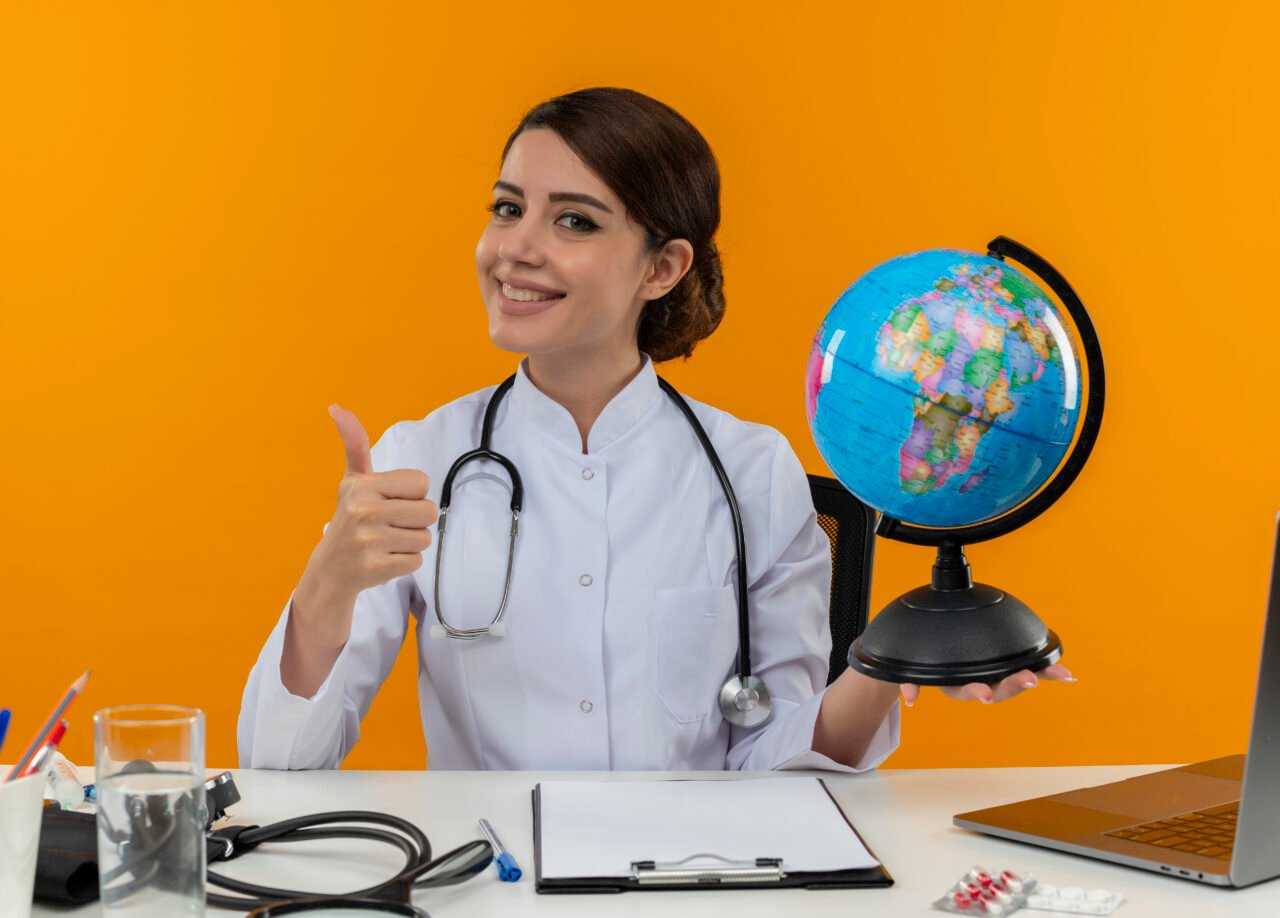Germany has become one of the most popular destinations for international medical graduates seeking to specialize and build a stable career. Its world-class healthcare system, structured medical training, and demand for qualified professionals make it an attractive option.
However, for non-EU students, the process involves strict documentation, licensing steps, and legal requirements. This guide outlines the exact documents you’ll need and what to expect during the Approbation (medical license) process.
📌 1. Introduction: Understanding Medical Residency in Germany
Medical residency in Germany is known as “Facharztausbildung” – a structured, salaried training program typically lasting between 5 and 6 years, depending on the specialty.
Before a non-EU graduate can begin residency, they must:
- Get their medical degree recognized.
- Prove language proficiency.
- Obtain a medical license (temporary or permanent).

📄 2. Degree Recognition: What You Must Provide
To evaluate your eligibility for residency, German authorities need proof that your foreign degree is equivalent to a German medical degree.
Required Documents:
- Medical Degree Certificate (e.g., MBBS, MD)
- Academic Transcripts: All years of study
- Course Curriculum/Syllabus: Including theoretical and clinical hours
- Internship Certificate / House Job Completion: For practical exposure
📌 Note: All documents must be translated into German by a certified (sworn) translator.
🆔 3. Identity and Legal Documents
Your identity must be verified through valid personal documentation.
You’ll Need:
- Valid Passport (with minimum 12 months validity)
- Birth Certificate
- Passport-sized Photographs (biometric standard)
- Name Change Documents (if applicable – e.g., marriage certificate)
🩺 4. Licensing: Approbation vs. Berufserlaubnis
To practice in Germany, you need one of two licenses:
| License | Purpose | Duration |
|---|---|---|
| Approbation | Permanent medical license | Unlimited |
| Berufserlaubnis | Temporary work permit | Limited to 2 years or tied to a hospital/state |
For Approbation Application, Submit:
- All academic documents listed above
- Proof of professional registration in your home country
- Certificate of Good Standing
- Application form (specific to each German state)
🗣️ 5. German Language Requirements
Language skills are non-negotiable for working in German healthcare.
You Need:
- B2 Certificate (general German) from Goethe, Telc, ÖSD, or TestDaF
- C1 Level (Medical German) via:
- Fachsprachprüfung (FSP) – Medical language exam conducted by the Medical Council
- Telc Deutsch C1 Medizin (in some states)
💡 Tip: Some states won’t process your application without the B2 certificate first.
🩹 6. Medical & Police Clearance Certificates
To ensure public safety and health, the authorities will require:
Submit:
- Medical Fitness Certificate: Issued by a German doctor, stating you’re physically and mentally fit to practice medicine.
- Police Clearance Certificate (from home country and countries you’ve lived in): Should be recent (within 3-6 months).
📑 7. Curriculum Vitae & Motivation Letter
A professional CV and Motivation Letter (in German) are typically required for job applications and often requested during licensing.
Must Include:
- Detailed CV in German (Europass format preferred)
- Motivation Letter in German:
- Why you want to do your residency in Germany
- Chosen specialty and future goals
- Explanation of qualifications and readiness
🧾 8. Certified Translations & Legalizations
All non-German documents must be:
- Translated into German by a sworn translator (beeidigter Übersetzer)
- Notarized or Apostilled, depending on the country of issue
✔️ Some German states require both the original and translated versions of each document.

🏥 9. Optional but Beneficial Documents
These documents are not always required but strongly recommended:
| Document | Purpose |
|---|---|
| Job Offer or Hospital Confirmation Letter | Boosts your visa and licensing application |
| Proof of Accommodation in Germany | Required during visa/residence registration |
| Proof of Financial Resources | Blocked account or employment contract |
| Kenntnisprüfung or FSP Appointment | Proof of scheduled exams if Approbation isn’t granted yet |
🏛️ 10. Where to Submit These Documents?
Applications are processed at the State Medical Council (Landesprüfungsamt) in the state where you plan to work. Each German state (Bundesland) has its own office.
Example Authorities:
- Berlin: service.berlin.de
- Bavaria: lgl.bayern.de
- North Rhine-Westphalia: bezreg-koeln.nrw.de
- Saxony: slaek.de
⏳ 11. Timeline and Processing Tips
| Step | Estimated Time |
|---|---|
| Document Collection & Translation | 1–3 months |
| Language Exams (B2 + C1) | 3–6 months |
| Approbation Review & Processing | 6–12 months |
| FSP / Kenntnisprüfung Dates | Vary by state – can take months to get |
✅ 12. Complete Document Checklist
Here’s a quick-reference checklist you can follow:
🔍 Academic Documents
- Medical degree certificate (translated)
- Academic transcripts
- Curriculum / syllabus
- Internship / house job certificates
🆔 Identity Documents
- Passport
- Birth certificate
- Passport photos
- Name change docs (if applicable)
⚖️ Legal & Licensing
- License to practice in home country
- Certificate of good standing
- Approbation / Berufserlaubnis application form
🗣️ Language
- B2 general German certificate
- C1 medical German (FSP or Telc C1 Medizin)
🏥 Other
- Police clearance certificate
- Medical fitness certificate (from German doctor)
- CV in German (Europass format)
- Motivation letter in German
- Sworn translations of all foreign documents
🧭 13. Final Tips for Success
- ✅ Start language preparation early
- ✅ Contact the state authority where you want to apply
- ✅ Keep both digital and physical copies of all documents
- ✅ Consider joining a Kenntnisprüfung or FSP preparation course
- ✅ Be patient – it’s a lengthy but rewarding process
📌 Conclusion
Applying for medical residency in Germany as a non-EU graduate is challenging, but absolutely achievable with the right planning. The documentation process is thorough because Germany wants to ensure quality and safety in healthcare. Once you complete the licensing and begin your residency, you’re on a strong path toward a stable, respected medical career in one of Europe’s top healthcare systems.
